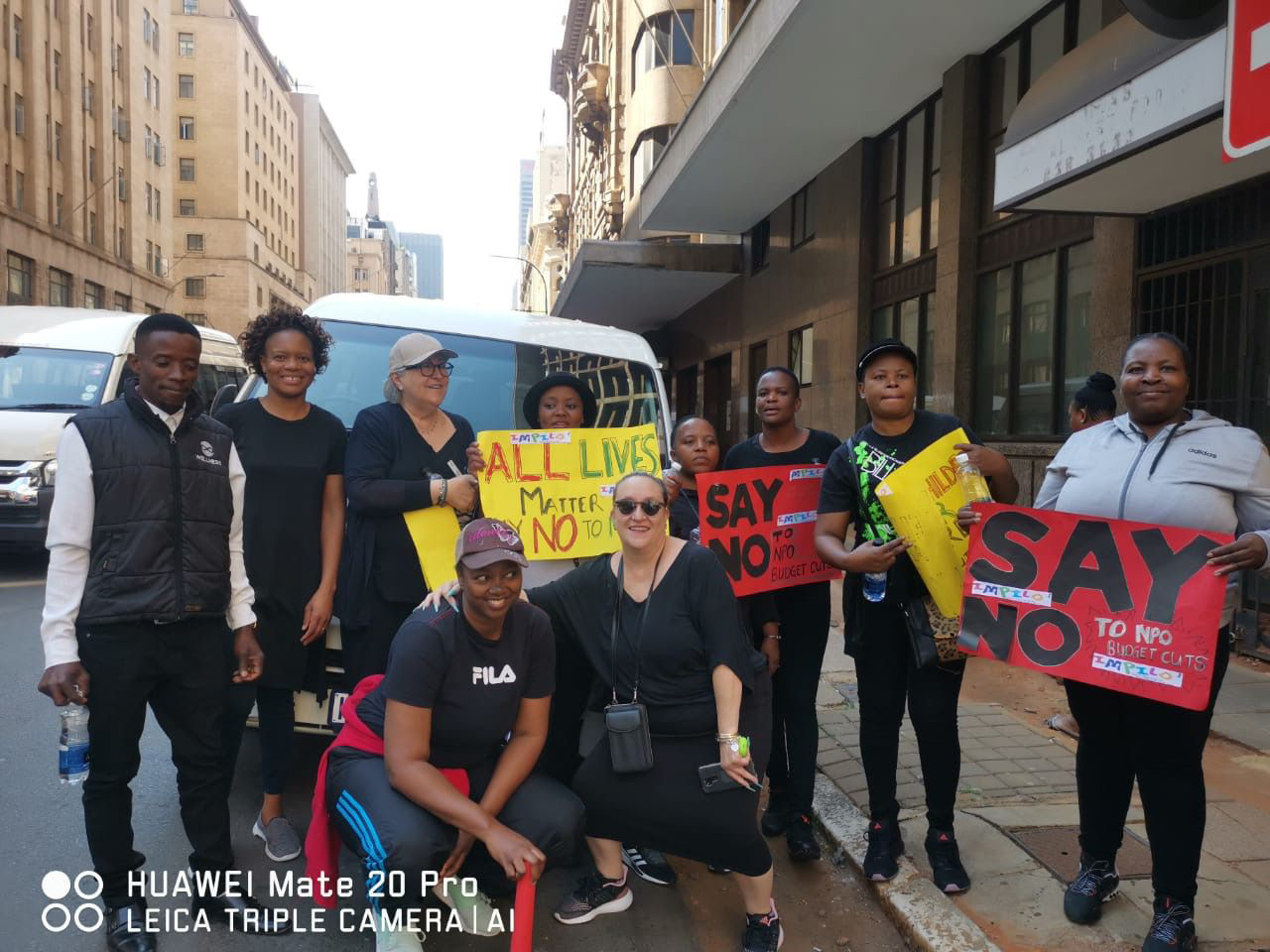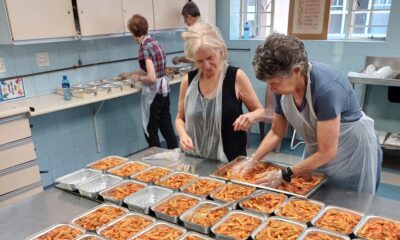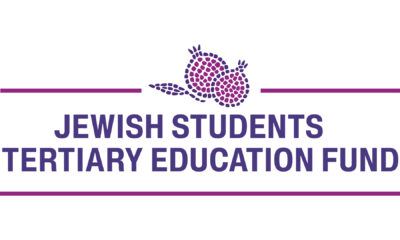
News

Chev warns of welfare crisis over budget cuts
Published
1 year agoon
A humanitarian crisis is brewing in Gauteng after the Gauteng Department of Social Development (DSD) made a unilateral decision to re-allocate millions of rands towards substance abuse, homelessness, and food security. Though it sounds positive, it means non-profit organisations (NPOs) supporting children, the elderly, the disabled, the mentally ill, those with HIV/Aids, and the abused won’t get desperately-needed government funding.
This is according to Chevrah Kadisha (Chev) Chief Executive Saul Tomson, who says that although it could have an impact on the work of the Chev, he won’t allow that to happen.
“The reduction of several million rand in funding to the Chev Group will in fact result in no decline in service offering, no loss of jobs, and no reduction in salaries to social workers,” he says. “This is because we’ll find a solution to this funding crisis.”
On 25 April, the Gauteng provincial government said it and the Gauteng DSD would review the decision and convene a meeting with the sector on 4 May “to engage them on the modalities of the new funding model and other issues affecting the sector”. This came after enormous pressure from the media, political parties, civil society, and NPOs pushing back against the reallocation.
On 18 April, the Democratic Alliance (DA) said it would “write to the minister for social development to intervene urgently before the Gauteng DSD plunges the province into a humanitarian crisis”.
“The DA has been inundated with desperate calls from Gauteng-based NGOs [nongovernmental organisations] pleading for help after Gauteng MEC for Social Development Mbali Hlophe announced that the budget would be reprioritised to better align with Gauteng Premier Panyaza Lesufi’s identified priorities,” said DA MP Bridget Masango. “This was seemingly done without consulting the NGOs, stakeholders, or beneficiaries, and without assessing the devastating impact.
“Some NGOs are also being forced to sign new service-level agreements that comply with their reduced funding. Thousands of vulnerable individuals cannot be allowed to suffer on the whim of a premier and an MEC, and the DA will do everything in our power to prevent a second Life Esidimeni tragedy.”
Tomson says, “The fallout from these budget cuts could actually be far worse [than Life Esidimeni],” when 144 people died at psychiatric facilities in Gauteng from starvation and neglect after being transferred from Life Esidimeni to cheaper centres.
But in a statement released on 16 April, the Gauteng DSD said that the budget of R2.3 billion allocated to NPOs remained in place, and NPOs would be funded “accordingly”. Hlophe said an example of the reallocated funds was the “provision of agriculture projects to ensure a move away from over reliance on food parcels [and] to enable individuals to produce their own food”.
Afrika Tikkun Chief Executive Marc Lubner says, “We have more than 50 staff potentially affected by this and more than 1 000 children who benefit from this DSD contract. We’re in conversation with the heads of department with whom we have always worked so well.”
Impilo Child Protection and Adoption Services is part of a collective of child protection organisations taking legal action against the department. It’s also one of 48 organisations of Gauteng Crisis in Care, formed to challenge the budget re-allocation.
“We held a picket at the MEC’s office on Thursday last week [20 April], and handed over a memorandum,” says Joy Capon, administration manager at Impilo. “Our director, Sue Krawitz, was interviewed on Radio 702 yesterday [24 April], and as a result, the premier, Panyaza Lesufi, committed on radio to ‘fix’ the problem. Yesterday evening [24 April], representatives of the group were called to an urgent meeting with Hlope. No promises were made.
“We’re hearing of organisations with many years of service closing down,” she says. “The most hard-hit seems to be the funding of social-work posts, which have been cut by 61%. We’re determined to raise enough funds to keep providing services.
“We employ 10 social workers and one auxiliary,” says Krawitz. “All of these staff and our support staff are at risk of losing their jobs if we’re forced to close. We’ve taken an ethical stand to try to keep providing services. Fundraising is now critical. This is in the middle of our water/electricity woes and the economic situation, which is already putting pressure on us and directly affects the babies in our care.”
Lisa Vetten, a research associate at the University of the Witwatersrand’s Southern Centre for Inequality Studies, is leading Gauteng Crisis in Care in discussions with the Gauteng DSD and Hlope. “I don’t think the department thought this through. Hearing first-hand examples of how people will lose jobs and vulnerable beneficiaries will lose services made it more obvious to them.”
She describes a disability NPO in which “30 staff will no longer have jobs at the end of the month, and they care for 1 200 beneficiaries and their families. They said to the Gauteng DSD, ‘We need to meet you to hand over our case files.’ And the DSD essentially responded, ‘We can’t take over your services.’”
Tomson says many who work in the welfare sector remain sceptical of the department’s plans. “I dread to imagine what will happen to this money [that’s being reallocated]. It’s mindboggling that they would do this without warning, consultation, and a plan in place about how to redeploy the funds and provide services when NPOs can no longer afford to do so.”
Donations account for 70% of the Chev’s overall budget. Six percent of the Chev’s residential facilities’ budget comes from the government. Though that might not sound like a lot, every rand counts, and the Chev will have to make a plan to make up the loss.
“We’ll have to rely on the community even further,” says Tomson. “If we don’t look after ourselves, there’s nobody else. That means relying on South African Jews locally or abroad. Welfare needs are further exacerbated by the fact that many elderly people are here alone. Without the Chev, they would literally have nowhere to go.”
Vetten says, “We’ve heard verbally that some organisations’ subsidies are being reinstated. However, there’s been no formal communication. We’re demanding full reinstatement plus a cost-of-living increase. Essentially, that letter [on 25 April] is noncommittal.”
She emphasises that even if this crisis is averted, it reveals much bigger questions, such as where welfare sits on the government’s list of priorities.
And although the Jewish community has realised that it needs to be self-reliant, Vetten says, “Feeling like you’re on your own can’t be the way we approach social care in South Africa.”











Ronen
Apr 29, 2023 at 6:12 pm
#voetsakanc
Cheryl
Jun 15, 2023 at 6:36 pm
It does not surprise me to think the Chev is in a financial crisis as they have no idea how to manage money, waste money on people who lie and deceit them, I am angry to think how much money they wasted on me, in the end they lost their case and lost thousands!! It’s constantly happening this is not a new issue!!!!